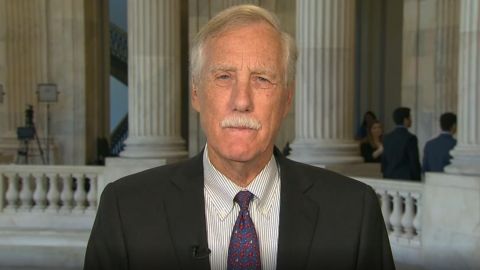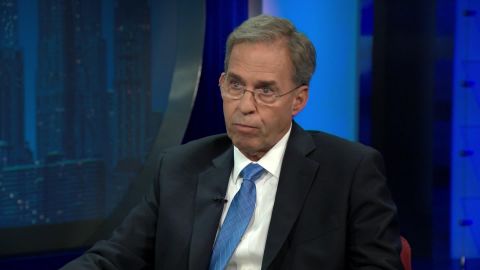Read Transcript EXPAND
ANDY BESHEAR, KENTUCKY ATTORNEY GENERAL: Well, this opioid epidemic is the challenge and the crisis of our lifetime. We lose 30 Kentuckians a week to a fatal overdose. Those are 30 of our family members and our friends that we lose every single week. We have over 100 babies born a month addicted to opioids. And it’s not just deaths or addiction, it’s tearing at the very fabric of our families. We have more kids in kinship care and foster care than ever before. So, this is truly an epidemic and a crisis in our very future depends on it. And we, like Oklahoma, believe that the makers and the distributors of these opioids knew exactly what they were doing. These are highly addictive substances that shouldn’t have been prescribed or marketed for so many of the folks out there now suffering from addiction. We shouldn’t have had the hundreds of millions of pills flooding into small communities where in many times we see more than a couple hundred opioids being prescribed for every man, woman and child in a small eastern or western Kentucky County.
CHRISTIANE AMANPOUR: Right. And —
BESHEAR: And the costs of what we face are so significant and that’s why we have filed over nine lawsuits just from my office alone, including against Johnson & Johnson and Janssen.
AMANPOUR: So, you know, you describe the state of affairs there. I mean, it is — your death rate is more than double the national average. But so, does this Oklahoma case against Johnson & Johnson, is — how important is this and why, for you, and for others trying to use the courts now instead of just out of court settlements and payouts?
BESHEAR: It’s important because it’s one of the first cases to go to trial where the public is going to hear about the actions of this company specifically. And Oklahoma, like Kentucky, alleges that they knew how dangerous these drugs were but they marketed them as “rarely addictive” and they even marketed them towards seniors, telling them that this would improve life and again, would rarely be addictive if used for chronic pain. It’s important because the truth is finally starting to come out. And what we’re going to see is that greed drove these multinational companies to flood our communities with substances that are causing thousands of deaths and tearing apart our family.
AMANPOUR: Abbe, I want to ask you because you’ve served as co-counsel on some of these health law cases and you — you know, you’re watching the sort of broader impact around the country. How important is it to — and how likely is it that it’s going to be successful in court because the others, whether it’s Purdue Pharma, whether it’s Teva Pharmaceuticals, they’ve settled out of court. Purdue, $270 million in March, the other one, $85 million in May. Why is it so important to do it this way now?
ABBE GLUCK, PROFESSOR, YALE LAW SCHOOL: Well, it’s important to Oklahoma. The Oklahoma attorney general is showing his constituents that he is being responsive to their concerns, being responsive to public safety.
About This Episode EXPAND
Christiane Amanpour speaks with Angus King, Andy Beshear and Abbe Gluck to gain various perspectives on the opioid crisis in the United States. Walter Isaacson talks to historian Rick Atkinson about “The British Are Coming,” the first book in his American Revolution trilogy.
LEARN MORE


